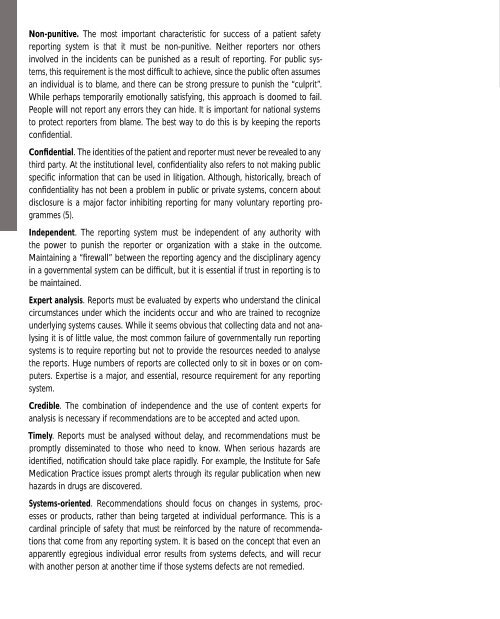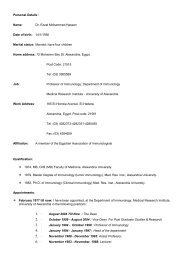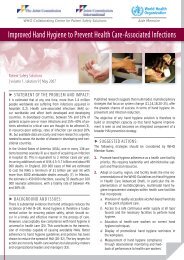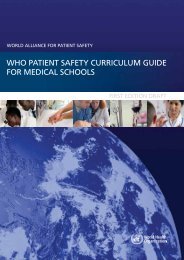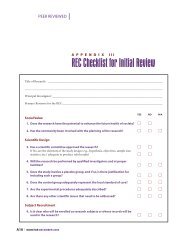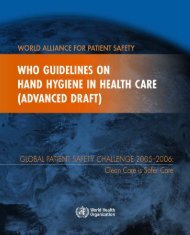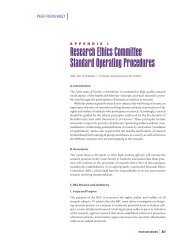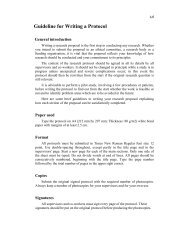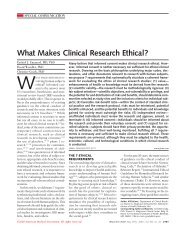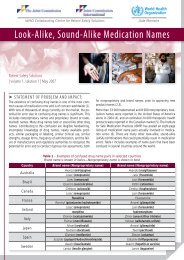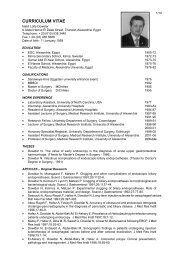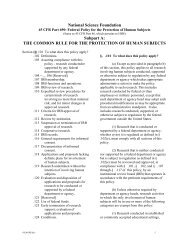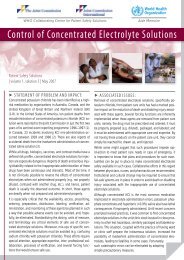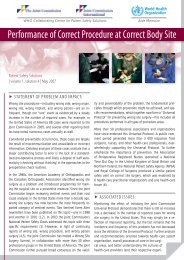Adverse event reporting.pdf
Adverse event reporting.pdf
Adverse event reporting.pdf
Create successful ePaper yourself
Turn your PDF publications into a flip-book with our unique Google optimized e-Paper software.
Non-punitive. The most important characteristic for success of a patient safety<br />
<strong>reporting</strong> system is that it must be non-punitive. Neither reporters nor others<br />
involved in the incidents can be punished as a result of <strong>reporting</strong>. For public systems,<br />
this requirement is the most difficult to achieve, since the public often assumes<br />
an individual is to blame, and there can be strong pressure to punish the “culprit”.<br />
While perhaps temporarily emotionally satisfying, this approach is doomed to fail.<br />
People will not report any errors they can hide. It is important for national systems<br />
to protect reporters from blame. The best way to do this is by keeping the reports<br />
confidential.<br />
Confidential. The identities of the patient and reporter must never be revealed to any<br />
third party. At the institutional level, confidentiality also refers to not making public<br />
specific information that can be used in litigation. Although, historically, breach of<br />
confidentiality has not been a problem in public or private systems, concern about<br />
disclosure is a major factor inhibiting <strong>reporting</strong> for many voluntary <strong>reporting</strong> programmes<br />
(5).<br />
Independent. The <strong>reporting</strong> system must be independent of any authority with<br />
the power to punish the reporter or organization with a stake in the outcome.<br />
Maintaining a “firewall” between the <strong>reporting</strong> agency and the disciplinary agency<br />
in a governmental system can be difficult, but it is essential if trust in <strong>reporting</strong> is to<br />
be maintained.<br />
Expert analysis. Reports must be evaluated by experts who understand the clinical<br />
circumstances under which the incidents occur and who are trained to recognize<br />
underlying systems causes. While it seems obvious that collecting data and not analysing<br />
it is of little value, the most common failure of governmentally run <strong>reporting</strong><br />
systems is to require <strong>reporting</strong> but not to provide the resources needed to analyse<br />
the reports. Huge numbers of reports are collected only to sit in boxes or on computers.<br />
Expertise is a major, and essential, resource requirement for any <strong>reporting</strong><br />
system.<br />
Credible. The combination of independence and the use of content experts for<br />
analysis is necessary if recommendations are to be accepted and acted upon.<br />
Timely. Reports must be analysed without delay, and recommendations must be<br />
promptly disseminated to those who need to know. When serious hazards are<br />
identified, notification should take place rapidly. For example, the Institute for Safe<br />
Medication Practice issues prompt alerts through its regular publication when new<br />
hazards in drugs are discovered.<br />
Systems-oriented. Recommendations should focus on changes in systems, processes<br />
or products, rather than being targeted at individual performance. This is a<br />
cardinal principle of safety that must be reinforced by the nature of recommendations<br />
that come from any <strong>reporting</strong> system. It is based on the concept that even an<br />
apparently egregious individual error results from systems defects, and will recur<br />
with another person at another time if those systems defects are not remedied.


